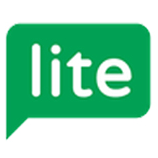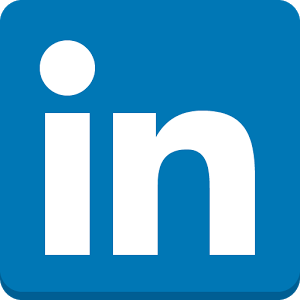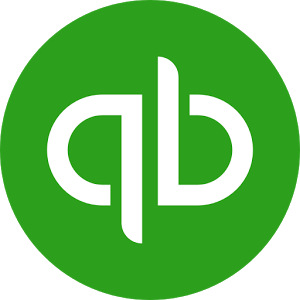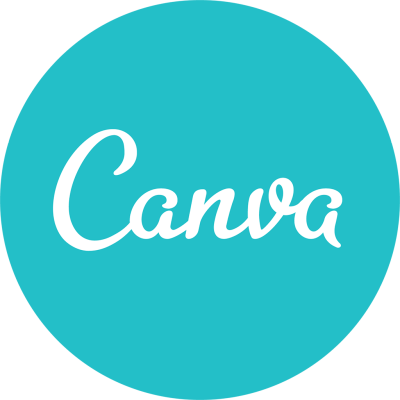Running A $57K/Month Educational Service Business Helping Students With ADHD
Hello! Who are you and what business did you start?🔗
My name is Sean G. McCormick and I founded an online executive functioning coaching business. Our coaching services are provided mainly to middle, high school, and college students throughout the country, and most of the students we serve are in my home state of California.
Our clients are parents and our focus is on the educational success of their children. Additionally, we contract with California school districts and have a paid online membership community for prospective coaches.
In March of 2023, we had our best month ever with a revenue of just over $100,000.

For the last 12 months, our average monthly revenue was around $57k.
I started this business as a sole proprietorship in 2019 and transitioned it to an S-Corporation in 2021. Initially, I provided one-to-one, in-person tutoring, and now we are a fully-remote business with 16 employees and 125 active clients.

What's your backstory and how did you come up with the idea?🔗
I come from a family of entrepreneurs. My great-grandparents had their own business (a marina on San Juan Island), my parents had their own business (commercial art and photography studio in SF) and my brother has his own business (Art and Design in LA and NY).
My first “business” was an “Item Shop” of random items I sold at the bottom of my driveway when I was 7. Since then, I’ve started a range of financially unsuccessful businesses including a hat company, selling my rap albums, writing essays for others, and flipping used cell phones.
Every failure has given me insights that allowed this business to succeed, however, I took a break from entrepreneurship in 2016 to become a public school teacher and earn a steady income for the first time.
Put yourself out there, don’t be afraid to look stupid, gather feedback, and approach things again from another angle. Everybody started knowing nothing.
When my first daughter was born in May of 2019, I wanted more control over my income and time, so I started tutoring on the side to see if it could be a pathway to a more flexible lifestyle.
With my first clients, I charged 75 dollars an hour and drove to their homes or to meet them at a library. As my outreach work to educational psychologists and therapists spread more awareness about my services, I started to get more and more referrals and I quickly raised my rates to $120 an hour, then $150, then to $200 an hour, all within 10 months.
One quote that my grandfather used to say to my mother and father when they started their own business in 1984, which got passed down to me was:
Question: What do you charge?
Answer: What the market will bear.
I kept testing the market to see what would happen, and people were always willing to pay, usually with immense gratitude. Once I reached a rate of $259 an hour, I realized that there was no clear ceiling for this work and that my next step was to hire others to provide this service alongside me.
I obtained my first tutoring client in January 2019 and by December 2020 I had 30 clients. At that point, I decided to resign from teaching and tutor full-time.
My business grew quickly in those first few years. In year two revenue grew by 300% and in year three by an additional 250%

Take us through the process of building the first version of your product.🔗
At first, I described my services as “tutoring”. The more clients that were sent my way, I realized the common thread was that all of them needed executive function support.
Executive function skills are skills like planning, organization, time management, inhibition, and self-awareness, that allow individuals to intelligently strive toward achieving their goals. ADHD is often referred to as “executive dysfunction,” so my focus turned toward helping students with ADHD learn how to manage school.
If you are wondering how executive function coaching differs from tutoring, here are some of the key differences:
- Tutoring is usually focused on one or two subjects, whereas executive function coaching focuses on the entire process of managing school, including correctly completing assignments, submitting them, and advocating to teachers for accommodations and support.
- Most students who utilize an executive function coach have some type of learning disability such as ADHD, Autism, or a specific learning disability related to reading, writing, or math. The best executive function coaches have a depth of understanding related to disabilities and how to accommodate and scaffold learning to address the underlying issues that make learning difficult for these students.
- Many executive function coaches have a background in special education, which means they also understand the rights of students and parents of students with disabilities and thus understand how to support families in accessing special services like “Specialized Academic Instruction” which are only available to students with disabilities. These services can be very costly. With the support of an experienced executive function coach, parents can have a highly individualized education plan that is free of charges beyond the cost of the executive function coach.
I changed my business name from McCormick Coaching Company to Executive Function Specialists and quickly cemented myself as valuable in the education community. There are very few competitors in this very niche education market. I’ve further niched down by providing executive function coaching at the intersection of special education, which was my area of expertise in the public school system.
From the start and to this day, I’ve leaned into the expertise, trust, and support of my family to help me grow. My first hire was my cousin, a college student who helped me with my clients, my Mom did the books, billing, and HR, my stepdad helped form the corporation, and my brother gave me business advice and helped with the artwork.
As word of mouth grew and we continued to help students improve their grades and manage school, I asked my cousin to start working directly with students so I could focus on taking on more clients. I trained my cousin on the techniques I was using and the process I took with each student to keep them on track. Within months, my cousin had more students than she could handle, so she suggested we hire her roommates, both of who were open to helping out.
They both came on board and again, after a few months, they had more students than they could handle. I posted on Facebook looking for experienced teachers who wanted to provide this type of coaching. Word got out, and I was able to hire a team member from Facebook and another person by using the free hiring tools on Indeed (definitely use the skills tests to sort through candidates – they help!)
With each person I hired, I took the time to train and problem-solve with them around any issues that would come up. I also led what we call Family Team Meetings, in which I would facilitate a problem-solving dialogue between the students and parents, which helped my team members learn how to manage each student and their family, thus leading to improved outcomes.
When I present our work, I often talk about the impact of what is known as “collective teacher efficacy,” or the shared belief between a group of people that a student can reach an agreed-upon goal.
The two educators I hired (after my cousin and her roommates), turned out to be people who wanted to grow with the business. However, one of them lived in a different state and I realized that we could grow quicker and more predictably if we were a fully remote company. Both of them were entering the business with significant teaching experience, so it was much easier to onboard them quickly and assign them, new clients.
To quicken the pace of my business growth, I started a podcast, entitled, Earn More Tutoring, and I began to interview other tutoring business owners and educators who had built their businesses. I had lots of questions and by featuring them as the experts, they provided me with expert advice that drove my growth.
Describe the process of launching the business.🔗
As I previously mentioned, niching down into “executive function coaching,” rather than pegging myself as a tutor, helped immensely.
What makes this kind of coaching niche despite ADHD being a mainstream problem, is that ADHD is still not fully accepted and acknowledged by the education community as a legitimate education issue.
For example, while there are 13 categories of disabilities according to the Individuals with Disabilities Education Act (IDEA) which allows for a student with a disability to access an Individualized Education Plan (IEP), ADHD is not one of those 13 categories, and thus, parents and advocates often need to go to great lengths to prove that their child has a disability.
Simultaneously, school districts often are very cautious to provide families with an IEP because they do not want to be flagged as an “over identifier” of students with special needs.
In the past, and still ongoing, Black and Latino children have been disproproritaly identified as having disabilities and isolated within the school system by being placed in segregated “special needs” classrooms. In response, the federal government began to flag districts with disproportionate numbers of students with IEPs and limited federal funding to these districts until they addressed this unfair treatment.
Needless to say, the issue is very complex, which is why educators with a unique blend of classroom experience, knowledge of special education rights and laws, and a passion for providing executive function coaching, are somewhat rare. Additionally, many teachers do not realize the valuable knowledge they are holding and never bring their skill set to the private market.
Not me tho.
I started doing lots of outreach to psychologists and therapists to get my name out there, then I would provide great services, and my name spread like wildfire in the Bay Area.
To attract more national clients, creating blog articles and learning more about SEO helped a lot. Watching Brian Dean’s Youtube channel and taking Adam Enfroy’s free course on Thinkific were incredibly helpful in this domain.
One of the biggest factors in scaling up was paying for a CRM called Tutorbird to manage my clients. This allowed us to go from spreadsheets and Zelle payments to our team, to a real system of tracking and managing hours, looking at billing data, and communicating with our customers.
Each time clients had a successful experience with my business, I would ask them to leave a Google Review. Then, I taught this to my team members and incentives for getting reviews, which led to an eagerness to collect positive reviews.
Focus on quality. People will sing your praises and grow your business for you if you convert them to raving fans. Start by understanding what their ideal outcomes are.
Simultaneously, I slowly worked my way out of direct service and started to focus on doing presentations about our work wherever I could. This drew more people to our website and created more exposure to the business, giving me both a local and national reputation as someone focused on helping students improve executive function skills.
Since launch, what has worked to attract and retain customers?🔗
For education services, especially if you are focused on helping kids with special needs, going to neuropsychologists and sharing what you do is powerful, because they are making recommendations in their assessment reports, and you could be one of them.
That will get you your first 50-70 customers. To keep growing, I then started identifying different online summits where I could talk directly to parents of students with ADHD. After each summit, I would ask the host if they could connect me with any other colleagues who could use a speaker like me.
Another key to growth has been to create valuable “opt-in” or “lead magnets.” My first and most valuable resource has been a series of communication templates that students can use to ask for extended time on assignments, request clarification on directions, and negotiate a plan with their teachers. I didn’t split-test them; I knew they were valuable and I kept getting feedback from students and parents professing their appreciation for them. By giving away free resources on my website in exchange for prospective clients' emails, I was able to stay atop people's minds.
After doing Adam Enfroy’s course on SEO and growth, I started putting out a weekly newsletter with a blog article for my audience. At first, my pieces were not great but as I did it week in and week out, they improved. I also focused on asking my audience for feedback and providing precisely what they wanted. Tools like SurferSEO helped me identify keywords and topics that could attract more clients, as well.
Another thing that helped was training my team members on inquiry calls so they could make sales and I could focus on continuing to expand and grow our message. I am a strong believer in Mike Michalowicz’s philosophy about identifying your Queen Bee Role.
It goes like this: What can you do that no one else on your team can do? For me, that is inspiring people to learn more about the importance of executive function skills (they predict better marital outcomes, addiction, school outcomes, etc). I have a strong desire to share this information with the world and train coaches on how they can help with this and because of my genuine interest in the topic, people are curious to learn more.
How are you doing today and what does the future look like?🔗
My business continues to grow, bringing in more clients and becoming more profitable. In a few years, I went from independent contractors to employees with benefits. My focus has been on improving work conditions so people feel committed to the business and will grow it, with or without my input. I want to create something sustainable that lives beyond my life.
Tangentially, I’ve been investing a lot of energy in my growing membership community for prospective executive function coaches. Using Thinkific, I’ve set up a recurring membership that can be purchased as a monthly or an annual fee, so it allows me to have predictable income that grows, without increasing the amount of work I need to do to run and support the community.
I am currently at 1400 email subscribers, averaging about 100 visits per day to my website, with an average session duration of 8 minutes and 22 seconds. I am excited to continue to grow these numbers while providing the same quality of service we have been all along.

My vision in the next five years is to create regional hubs for my service so that we can contract directly with school districts in different states. I also plan to train more people on my team to be spokespeople for the brand to increase national and global awareness of the importance of executive function skills.
My long-term vision is to shift the conversation in education to focus more on the development of executive function skills and less on the myopic focus on subject-specific skills, which the research shows, are less of a predictor of long-term student success.
I would like to work with OSEP (Office of Special Education Programs) to improve transition outcomes for youth with disabilities who need guidance and support in making the leap from formal education to employment and entrepreneurship.
Through starting the business, have you learned anything particularly helpful or advantageous?🔗
Growing and leading a business has been a constant learning process. Having customers and employees is a humbling experience because I have to continue to focus more on what they want and need and less on what I think is right or important. Here are my top three tips for new entrepreneurs:
Tip #1: Focus on quality. People will sing your praises and grow your business for you if you convert them to raving fans. Start by understanding what their ideal outcomes are using questions like, “How would your life be different if we worked together for the next 6 months?” A good book on this topic is “Superfans” by Pat Flynn.
Tip #2: Don’t be too eager to jump ship. Because I wanted to grow my business fast, I sometimes gave too much authority to others, hoping that they could grow my business for me. But then, when they took my business in a different direction, I had to claw back my authority in what felt like an emotionally painful and dreadful process. Be very strategic and thoughtful about giving away authority in your business. Focus on teaching people how to do a role you have mastered and letting the cream rise to the top.
Tip #3: Focus on profitability from the outset. I was excited about the book: “Profit First” and the saying “Pay yourself first”. I had to learn how to make sure I was making a good living and to understand all the details about our revenue, expenses, gross profit, net profit, and all the costs including payroll, benefits, taxes, saving, and being prepared for lean months.
My operations manager, who is also my Mom, was essential in continuing to encourage me to review all our financials and base my decisions on numbers, not just intuition.
Tip #4: Diversify your income. I decided to coach students, but also bring this support to school by forming what is known as a Non-Public Agency. Now, I have income from private pay and school districts, which gives me more security.
Additionally, I started a membership program to add another revenue stream. I am always looking for additional revenue streams that are within the same “lane” as my current work. In the future, I see myself consulting with other tutoring companies to help them grow, helping non-profits and institutions access funding for supporting students with executive function challenges and doing more public speaking.
What platform/tools do you use for your business?🔗
Tutorbird is the most fundamental tool for growing a tutoring-type business. It sends reminders to students and parents, sends automatic invoices, and much more.
Basecamp is great for keeping my team connected and for project management.
Calendly for holding inquiry calls.
Thinkific for hosting my courses and connecting my online community.
BambooHR for managing Staff and HR.
Quickbooks for managing my finances.
PeopleKeep for Healthcare Reimbursement.
Guidelines for Retirement accounts.
What have been the most influential books, podcasts, or other resources?🔗
Expert Secrets by Russell Brunson opened my eyes to what a funnel is and how powerful it can be for business growth.
Kat Norton opened my eyes to the power of manifestation and believing in yourself and creating unique content around whatever you like to nerd out to.
The Business by Design podcast has been very helpful in crafting a more attractive offer that leaves people chomping at the bit to sign up.
Mike Michalowicz collected body of work has been very influential.
The Four Hour Workweek by Tim Ferris showed me that outrageous realities can be possibilities.
Jesse Roselin of Tutorcorps and Pacific, Preparatory has been a fantastic mentor.
Adam Enfroy’s guidance on blogging and content creation is invaluable.
There are so many more. I soak up as much expertise as I can.
Advice for other entrepreneurs who want to get started or are just starting out?🔗
TAKE ACTION. You have to throw a bunch of shit at the wall and see what sticks. So many people tell me, “I always thought about doing it, but you did it!”
So many people are stuck in the planning stage, deliberating all their options, when they just need to try something and see how it goes. I still have days when no one shows up at my webinars, but I always learn something from these experiences.
Put yourself out there, don’t be afraid to look stupid, gather feedback, and approach things again from another angle. Everybody started knowing nothing.
Are you looking to hire for certain positions right now?🔗
I do have a vision of an operations person that can help me scale my business upward. They would need to be a spreadsheet wizard, excellent with finances and payroll, friendly and easy to work with, and capable of managing other people.
Eventually, I would like to hire a CEO that could carry out my vision and guide this business toward continuing to positively impact the world sustainably and expansively.
Where can we go to learn more?🔗
If you have any questions or comments, drop a comment below.

Download the report and join our email newsletter packed with business ideas and money-making opportunities, backed by real-life case studies.

Download the report and join our email newsletter packed with business ideas and money-making opportunities, backed by real-life case studies.

Download the report and join our email newsletter packed with business ideas and money-making opportunities, backed by real-life case studies.

Download the report and join our email newsletter packed with business ideas and money-making opportunities, backed by real-life case studies.

Download the report and join our email newsletter packed with business ideas and money-making opportunities, backed by real-life case studies.

Download the report and join our email newsletter packed with business ideas and money-making opportunities, backed by real-life case studies.

Download the report and join our email newsletter packed with business ideas and money-making opportunities, backed by real-life case studies.

Download the report and join our email newsletter packed with business ideas and money-making opportunities, backed by real-life case studies.

























